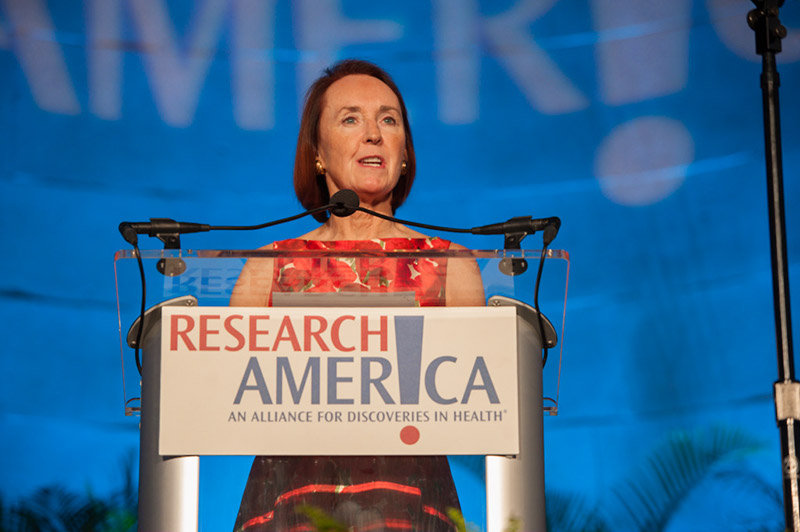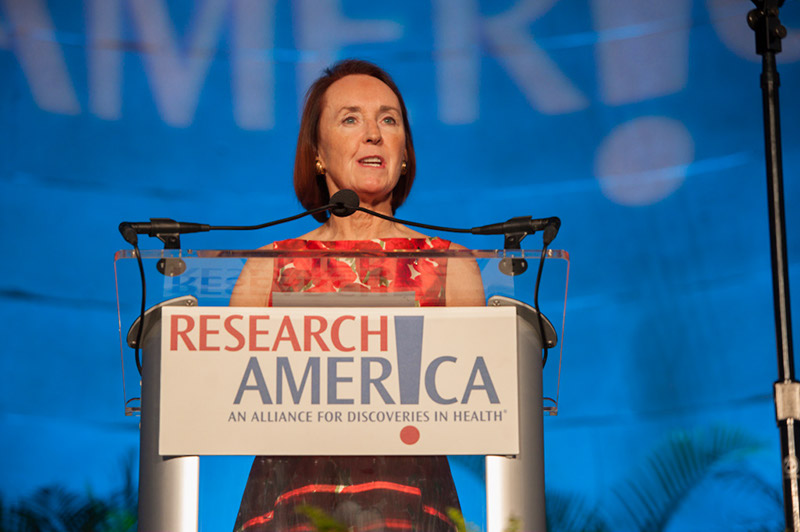Stimulating Progress


Dear Research Advocate,
Supplemental Funding Needs, Part 1: President-elect Biden has indicated he will seek bipartisan support for a supplemental funding measure to address the urgent and ever-evolving needs created by this vicious and ongoing pandemic. Research!America has sent a letter to the President-elect with several supplemental funding requests, and we will follow up with a letter to Congressional leadership.
Earlier this week we held an alliance member meeting with NIH Principal Deputy Director Dr. Larry Tabak and Deputy Director for Extramural Research Dr. Michael Lauer (recording here). Every minute of this meeting provided vital information on how the agency is struggling to simultaneously — and so far without supplemental funding — address funding gaps created by COVID-19, help repair the pandemic-damaged career path for young investigators, and somehow still push forward to seed progress against other health threats. It’s heartless and a false economy to abandon previous investment in desperately needed medical progress. It’s more expensive, and more lives will be lost, if the research has to start over. And, it would be catastrophic for our future if our nation’s young scientists lose hope, and switch career paths during this tumultuous funding environment.
Supplemental Funding Needs, Part 2: The American Public Health Association’s Executive Director {and Research!America board member} Dr. Georges Benjamin spoke to an alliance meeting today. Again, every minute of this extraordinary discussion is worth watching.
Dr. Benjamin not only addressed a raft of questions on the pandemic, the vaccines developed to combat it, and the desperate need for public health resources, he underscored what this crisis highlights about science: “…research brought us a very novel mRNA tool that we can use for vaccines. We will be able to use it for cancer and (other diseases). So when people ask why you should invest in research: it saves lives.” Please watch and share this recording.
Supplemental Funding Needs, Part 3: On January 11, 2020, Gopal Khanna resigned as Director of the Agency for Healthcare Research and Quality. Gopal worked tirelessly throughout his tenure to emphasize the uncomfortable reality that our health care system can’t work efficiently, cost-effectively, and safely without fully applying the evidence base that health services research provides. Dr. Peter Pronovost calls this the trillion-dollar problem; well-deployed health services research can save that much or more in federal health spending. And it can save countless lives.
Gopal also made a rock-solid case for AHRQ’s to be front and center in the COVID-19 response. The truth is that AHRQ needs more funding for the crucial role it should be playing. Read Gopal’s final blog post. Thank you, Gopal, for your leadership.
Supplemental Funding Needs, Part 4: The remarkable story of the rapid development of successful COVID-19 vaccines — historical by any measure — should be followed by a remarkable story of rapid inoculation. Accomplishing that has proved frustratingly elusive to date. It’s not unlike the system challenge in health care delivery that Director Khanna describes: difficult but doable. Public health, including CDC and our public health infrastructure, needs more funding.
Fragile Public Trust: Citing data gathered just a few weeks ago, the annual Edelman Trust Barometer reveals that trust in our leaders, our institutions, and our media is at an all-time low, not only in the U.S. but worldwide.
That’s truly bad news. The better news is that scientific institutions and scientists (rightly inclusive of the private sector) who are making a difference in the pandemic are regarded more favorably now than just a year ago, per a survey commissioned by ScienceCounts.
Science and technology are demonstrably critical to our nation and the global community. So is S&T advocacy.
Deadline Approaching: The Eagleton Science and Policy Initiative works to foster better understanding and relationships between scientists, engineers, and policymakers. The Fellowships place young scientists, engineers, physicians, and pharmacists in New Jersey state government offices, full time, for one year. Please visit the webpage for more information, to share, and to apply. Hurry: the deadline is January 18, 2021.
Don’t Miss it: We are thrilled to announce that next Friday, January 22, 2021, at 2 p.m. ET, Steve Clemons, Editor-At-Large of The Hill (who also headlined our Post-Election Briefing and participated in the National Health Research Forum) will join us to help put the puzzle pieces together as a new Administration and a new Congress begin what is sure to be a rollercoaster of a year on (and off) Capitol Hill. Register today.
Stay well, stay safe, and stay connected.
Sincerely,
Mary Woolley




